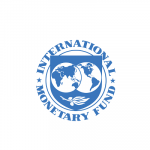Islamabad: The Economic Coordination Committee (ECC) of the Cabinet, chaired by Finance Minister Muhammad Aurangzeb, has approved a revised cost of USD 7.7 billion for the first phase of the Reko Diq copper and gold mining project, reflecting a 79% increase from the original estimate.
According to official details, the updated figure includes USD 5.8 billion in capital expenditure, with additional borrowing requirements raising the debt component to USD 3.5 billion. The higher debt burden will add around USD 180 million in interest costs, while shareholder contributions have also risen by USD 458 million.
This is the second cost revision in six months, largely attributed to inflation, rising operating costs during construction, and financing needs aimed at insulating the project against future price shocks. The previous revision earlier this year had placed the cost at USD 6.8 billion, while the original estimate two and a half years ago stood at USD 4.3 billion.
The ECC also approved the signing of implementation agreements, formally initiating the project. These agreements cover definitive financial commitments and operational terms, with provisions for further adjustments if recommended by legal and financial advisers or the Reko Diq Mining Company.
Read: ADB to provide USD 410m financing for Reko Diq mine
Phase I of the project is scheduled to commence production by end-2028, with an expected annual copper output of 200,000 tonnes. Phase II, due for completion by 2034, will require an additional USD 3.3 billion in investment, expanding production capacity to 90 million tonnes per annum.
The project is expected to generate an estimated USD 70 billion in net cash flow over 37 years—almost ten times Pakistan’s current foreign exchange reserves—making it one of the country’s most significant mineral resource developments.
Pakistan’s stake in Reko Diq is shared among three federal entities—OGDCL, Pakistan Petroleum Limited, and Government Holdings (Private) Limited—each holding 8.33%, along with a 25% stake by the Balochistan government. The remaining 50% stake is held by Barrick Gold, which will also operate the project.
The Reko Diq mine has drawn strong international interest, including from the United States and China, positioning it as a strategic asset in Pakistan’s long-term economic and industrial development.






